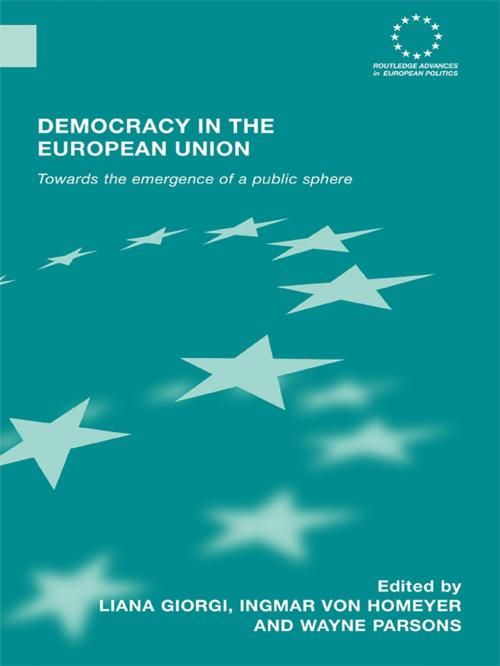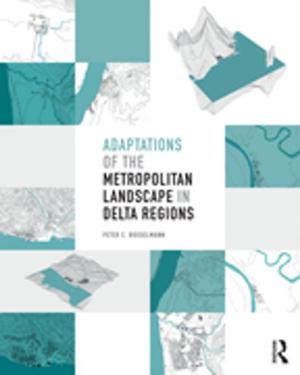Democracy in the European Union
Towards the Emergence of a Public Sphere
Nonfiction, Social & Cultural Studies, Political Science, Government, Democracy, International, International Relations| Author: | ISBN: | 9781134224319 | |
| Publisher: | Taylor and Francis | Publication: | September 27, 2006 |
| Imprint: | Routledge | Language: | English |
| Author: | |
| ISBN: | 9781134224319 |
| Publisher: | Taylor and Francis |
| Publication: | September 27, 2006 |
| Imprint: | Routledge |
| Language: | English |
An invaluable exploration of the concern that transfers of power to European Union institutions are producing a worrying new form of democratic deficit.
While ongoing reforms of these institutions promise to render decision processes at European level more transparent and accountable, these expert authors examine whether there is a European public sphere for citizens and their representatives to discuss, deliberate and evaluate issues of public relevance. They show how the process of European integration has given rise to a new object of study – European society, and why key questions concerning identity, citizenship, democracy, government and institutions are being raised anew and are major political concerns at European and Member State level.
With six case studies of EU policy-making and representative institutions, they analyze the intensity of participatory practices in four dimensions: mobilization of societal actors, public contestation and debate, openness of decision-making, and responsiveness of policy makers.
This book will be of strong interest to students and researchers of the European Union, European politics, European studies as well as those concerned with more theoretical aspects of governance and the public sphere.
An invaluable exploration of the concern that transfers of power to European Union institutions are producing a worrying new form of democratic deficit.
While ongoing reforms of these institutions promise to render decision processes at European level more transparent and accountable, these expert authors examine whether there is a European public sphere for citizens and their representatives to discuss, deliberate and evaluate issues of public relevance. They show how the process of European integration has given rise to a new object of study – European society, and why key questions concerning identity, citizenship, democracy, government and institutions are being raised anew and are major political concerns at European and Member State level.
With six case studies of EU policy-making and representative institutions, they analyze the intensity of participatory practices in four dimensions: mobilization of societal actors, public contestation and debate, openness of decision-making, and responsiveness of policy makers.
This book will be of strong interest to students and researchers of the European Union, European politics, European studies as well as those concerned with more theoretical aspects of governance and the public sphere.















